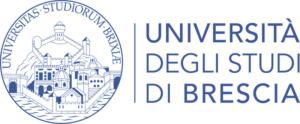Call for prposal: H2020-779963 EUROBENCH FSTP-1
Role: Partner
Responsible for UniBS: Dott. Matteo Lancini – Department of Mechanical and Industrial Engineering
Contact: matteo.lancini@unibs.it
Start date 02/03/2021 – End adate 31/12/2021
Abstract
Exoskeletons help in closing the gap toward a normal life for SCI people. Since generally exoskeletons require the contemporary presence of a pair of crutches, the continuous and daily usage require attention to possible consequences such as shoulder pain. Shoulder load evaluation was addressed by the Bullet project – Walking with crutches scenario – and a set of performance indicators -PIs- during standard gait is provided by the Eurobench framework. This represent a first approach in the evaluation of pilot-exoskeleton interaction and considers a typical activity of course, but, on the other hand, other gestures are common if we consider exoskeleton as a support in daily life. To fill this gap, SLEDGE addresses common daily life gestures such as seat to stand and manipulation tasks that requires one hand, while using a single crutch with the other limb. In such scenarios, completely different from walking dynamics, shoulder loads could be significant.
SLEDGE proposes to transfer shoulders PIs in these scenarios for an overall evaluation. This is enables validation of Eurobench framework and demonstrates its flexibility transferring shoulder load evaluation scheme, designed for walking, to different gestures and different scenarios: on one side SLEDGE will enable a validation of Bullet set up beyond design conditions, on the other will validate the interoperability of Eurobench performance indicators on different test beds. As
regards exoskeleton developers and users, SLEDGE will provide indication to optimize exoskeleton control, its adjustment on a specific subject and subject training, to minimize shoulders loads in daily life activities and not only in standard straight walking.
- UNIVERSITA’ DEGLI STUDI DI GENOVA (Coordinator), Italy
- UNIVERSITA’ DEGLI STUDI DI BRESCIA, Italy
- UNIVERSITA’ DEGLI STUDI DI TRENTO, Italy
Total project cost: € 68.375,00
EU contribution: € 60.000,00
EU contribution for UniBS: € 7,000,00

